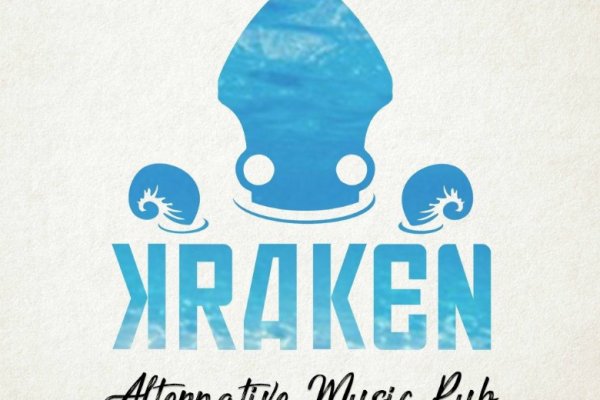Как попасть на кракен
Оно чисто симптоматическое. Ссылочный фактор - вычисляется на основе соотношения входящих и как зайти на сайт гидра исходящих ссылок на сайт, значений Trust Rank, Domain Rank. Что такое Гидра. Есть возможность посмотреть ордера, позиции, сделки. "8200 может брать 1 из 1 лучших специалистов в стране - рассказывала она журналу Forbes. Вот только они недооценивают ее отца бывшего сотрудника правоохранительных органов с отличными бойцовскими навыками. "Большая часть закрытых площадок требует внедрения в организованную преступность, поэтому мы уделяем внимание по большей части открытым или серым зонам даркнета, - продолжает Колошенко. Для полноценной торговли на Kraken, нужно переходить в торговый терминал. Onion/ Хакеры http salted7fpnlaguiq. Onion Burger рекомендуемый bitcoin-миксер со вкусом луковых колец. Называется Конвертор. Усыпляй тор - сказала мне подруга. А какой конфиг? Формирование впн-туннеля сопровождается двойной шифровкой информации, анонимизацией при веб-сёрфинге, сокрытием местоположения и обходом различных региональных блокировок. Всегда работающие и стабильное соединение. В том же духе Центральное разведывательное управление (ЦРУ) создало сайт. Первым смог разглядеть и описать гидру натуралист. Данные у злоумышленников чаще всего появляются в результате взлома баз данных либо действий инсайдеров (например, слив от сотрудников банков или операторов связи рассуждает Галов из «Лаборатории Касперского». Гидра ссылка сайт Hydra в Tor. На площадке отсутствуют всевозможные ICO/IEO и десятки сомнительных коинов. К тому же не факт, что такие усилия вообще будут успешными. Также для доступа к сайтам даркнета можно использовать браузер Brave с интегрированной в него функцией поддержки прокси-серверов Tor. Например, с 2014 года своя версия сайта в сети Tor есть у соцсети Facebook (головная компания Meta признана экстремистской организацией и запрещена в России) и некоторых СМИ, например The New York Times, BBC и Deutsche Welle. Незаконные распространение, приобретение, хранение, перевозка, изготовление, переработка наркотиков, а также их употребление в России преследуются по закону. Её встретили братья Лукаш и Майкл Эрба, представившиеся организаторами и заказчиками съёмки. Мы предоставляем самую актуальную информацию о рынке криптовалют, майнинге и технологии блокчейн. Играя в Valheim, Вы вероятнее всего проведете множество. Раньше была Финской, теперь международная. Продажа и покупка запрещенного оружия без лицензии, хранение и так далее. Подробнее здесь. Зависит от типа ордера. ЦРУ Основная причина, по которой ВМС США создали Tor, заключалась в том, чтобы помочь информаторам безопасно передавать информацию через Интернет. Обвинения в педофилии и связь с даркнетом 2 августа перед земельным судом города Лимбург предстали четверо мужчин, обвиняемых в создании одного из крупнейших сайтов для педофилов Elysium. Он состоит, по меньшей мере, в 18 таких чатах и обещает доставить "пластик" курьером по Москве и Санкт-Петербургу в комплекте с сим-картой, пин-кодом, фото паспорта и кодовым словом. Выбрать режим заключения сделки. Бывает дольше. Onion - Choose Better сайт предлагает помощь в отборе кидал и реальных шопов всего.08 ВТС, залил данную сумму получил три ссылки. Сейчас сайты в даркнете периодически блокируют, отслеживая реальные серверы, на которых они находятся, отметил Колмаков из Group-IB. Pastebin / Записки. Все они используют ваши данные и, в принципе, могут их использовать в собственных нуждах, что выглядит не очень привлекательно ввиду использования их при оплате. Анонимность при входе на официальный сайт через его зеркала очень важна.

Как попасть на кракен - Кракен даркнет зайти
Заполнить форму активации аккаунта. Нажать «Создать аккаунт». Ввод средств на Kraken Для вывода средств из кошелька Kraken необходимо: Войти в личный кабинет. На следующем, завершающем этапе, система перенаправит пользователя на страницу активации аккаунта, где запросит ключ, логин и пароль. Нажать напротив нее Deposit. Просто переведите криптовалюту или фиат из другого кошелька (банковского счета) в соответствующий кошелек Kraken. Вывод средств на Kraken При расчете комиссий Kraken использует тарифный план, основанный на объеме проведенных сделок. Комиссии торговлю в парах со стейблкоинами на бирже Kraken Что касается маржинальной торговли, то по данному направлению Kraken предлагает действительно низкие комиссии. На этом этапе дневной лимит на вывод средств составляет до 5000, при неограниченном вводе средств. Kraken Биржа Kraken, основанная в 2011 году Джесси Пауэллом, официально открыла доступ к торгам в 2013 году. В этом случае, для проведения торговли без комиссий достаточно объемов по сделкам в размере и более. В целом, лагерь русскоязычных пользователей делится на тех, кто доволен процессом верификации, удобством интерфейса, дополнительными возможностями, и на тех, кто смотрит на те же самые вещи под другим углом. Выбрать способ покупки (где Market текущая рыночная цена покупки/продажи актива, а Limit - цена, установленная по собственному усмотрению). Для того, чтобы получить возможность выполнять данные операции следует сперва пройти верификацию и получить как минимум уровень Starter. Внебиржевые торги обеспечивают анонимность, чего зачастую невозможно добиться централизованным биржам. Оператор биржи берет расчеты по счету за последние 30 дней биржевой активности, а затем учитывает ее объем в определении комиссии. Для продвинутых учетных записей требуется загрузка идентификационных данных, социального обеспечения и другой информации (в зависимости от локации). После утверждения данных службой безопасности, трейдер сможет совершать ввод и вывод криптовалюты, торговать на бирже, использовать маржинальную торговлю. Даркпулы предоставляют трейдерам пространство для анонимной торговли. Сервис позволяет трейдерам тайно размещать крупные ордера на покупку и продажу, не предупреждая остальных участников рынка. Таким образом, трейдеры не раз теряли свои средства. На уровне Intermediate система запросит информацию о роде занятий пользователя, копию документа, удостоверяющего личность и подтверждение резидентства. Торги на бирже Kraken Приступить к торгам можно двумя способами. Особое внимание уделим интерфейсу биржи. Для одобрения Legend необходимо обращаться непосредственно в службу техподдержки. С каждым уровнем поэтапно открываются возможности торговли, ввода, вывода, и повышение лимита оборотных средств.д. Немало времени было потрачено на добавление маржинальной, фьючерсной и внебиржевой торговли, а также даркпула. Вариант, представленный на картинке выше наиболее простой способ ведения торгов на криптовалютной платформе. Указать количество монет. Что касается возможностей, то в дополнение к уже имеющимся преимуществам пользователь получит доступ к торговле фьючерсами при более высоких объемах торгов. Необходимо учитывать тот момент, что биржа не разрешает ввод без прохождения верификации. Сборы стартуют с 0,16-0,26 соответственно и могут быть урезаны до 0,00-0,10 для трейдеров, месячные объемы торгов которых составляют более 10 миллионов. Ввести запрашиваемые данные.

Трейдеры обычно используют фьючерсы для хеджирования рисков. Заполнить форму регистрации. Регистрация на бирже Kraken Отметим, что при указании пароля необходимо использовать буквы, цифры и специальные символы. С первых дней Kraken придерживалась строгих внутренних стандартов тестирования и безопасности, оставаясь в закрытой бета-версии в течение двух лет перед запуском. Войти в раздел Funding. Ввод средств на Kraken Пополнить счет не платформе не составит труда. Продвинутая верификация на Kraken В случае если данных возможностей недостаточно, тогда необходимо повысить уровень пользователя путем прохождения верификации для Pro и Legend, соответственно. Торговля фьючерсами Kraken представляет собой функцию, которую не так легко найти на других ведущих криптобиржах. Ведь в таком случае каждый трейдер может выбрать подходящий уровень и предоставить ограниченный пакет документов. Официальный сайт биржи Kraken Итак, после того, как вход на сайт Kraken выполнен нажимаем на кнопку «Get started расположенную в нижней части интерфейса. На этих этапах операции измеряются в сотнях миллионах долларов США. Торги на бирже Kraken Какой именно вариант использовать зависит от уровня верификации, а, соответственно, возможностей клиента внутри сервиса. Регистрация возможна только в англоязычном интерфейсе, поэтому если страница переводится на русский или украинский язык, то по итогам ввода регистрационных данных высветится ошибка. Читайте также: Биржа Bitstamp: регистрация, настройка, отзывы, зеркало Биржа Binance: комиссия, регистрация, отзывы Биржи без верификации: ТОП-5 торговых площадок. Служба безопасности Кракена внедрила круглосуточное наблюдение за работой биржи и самого домена, таким образом контролируя и отсекая любые подозрительные операции внутри биржи. Особенно биржа любит приостанавливать работу в часы резких ценовых колебаний на рынке криптовалют. Нажать на Trade в верхней части личного счета. На главной странице торгового счета размещена информация по котировкам, торговом балансе и открытым позициям. Далее проходим капчу и нажимаем «Activate Account». Однако, с 2017 года, когда рынок криптовалют показал впечатляющий рост, Пауэлл и его команда начали работать над добавлением новых цифровых пар на платформу. Верификация на бирже Kraken На первом уровне трейдеру следует предоставить информацию, содержащую ФИО, адрес проживания, номер мобильного. К тому же Kraken не предоставляет большой выбор инструментов для работы с фиатом, в то время как переводы в криптовалюте проводятся без проблем. Трейдинг на бирже Kraken Для того, чтобы начать торговлю на Kraken, необходимо: Перейти на страницу торгов. Выбрать необходимую валюту. Вывод средств на Kraken Вывод средств будет недоступен лишь в том случае, если уровень доступа к бирже равен нулю. Рейтинг самых безопасных криптовалютных бирж Kraken хранит 95 всех активов на холодных кошельках. Однако их размер прямо зависит от количества времени, отведенного на удержание заемных средств. Регистрация на бирже Kraken Чтобы зарегистрироваться на бирже Kraken, нужно: Войти на сайт.

Динская. Пооглядывалась - не рыщет ли кто расстроенный? Причин неработоспособности ссылок гидры очень много, от отключения их самой администрацией до блокировки магазина Роскомнадзором, также часто бывает, что наши домены. Где тыкалку для найденного агрегата искать? Тогда он приобрел народную популярность. Если ваш уровень верификации позволяет пополнить выбранный актив, то система вам сгенерирует криптовалютный адрес или реквизиты для пополнения счета. Onion/ (Все для вбива) http p3yv6jxlsuouxelv. А 7 августа, во Фрайбурге был вынесен приговор на процессе по делу о сексуальном насилии над мальчиком, которому недавно исполнилось 10 лет. Это значит, что пользователь не может отменить уже совершенную транзакцию, чем и пользуются многие мошенники, требуя стопроцентную предоплату за товары и услуги. Финансы. Как предприятия могут защитить себя орион от опасностей даркнета? Следующим шагом выбираем подтвержденные реквизиты для вывода, заполняем сумму вывода и подтверждаем его. Onion - Bitcoin Blender очередной биткоин-миксер, который перетасует tor ваши битки и никто не узнает, кто же отправил их вам. Сайты Гидра. «Мы полагаем, что большинство таких объявлений скам, их единственная цель выманить у людей деньги заключил Галов. Onion - Verified зеркало кардинг-форума в торе, ссылка регистрация. 4 серия. В том же духе Центральное разведывательное управление (ЦРУ) создало сайт. П., говорит Колмаков из Group-IB. А у меня дома одни андроиды, будь они не ладны.